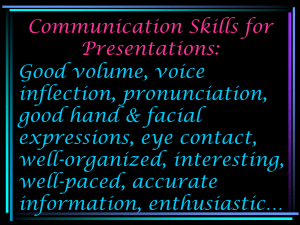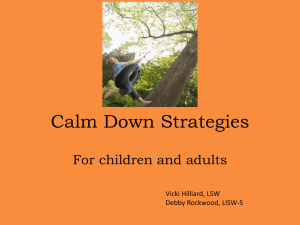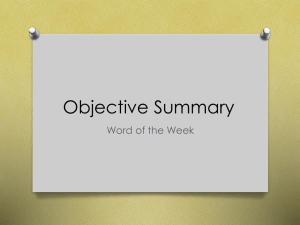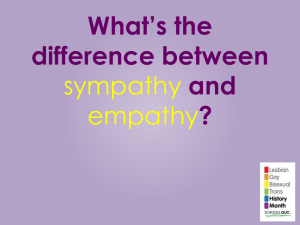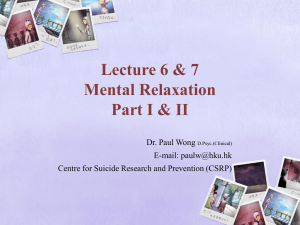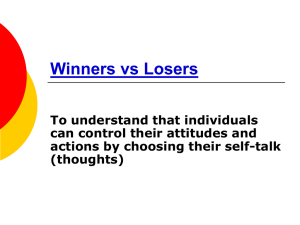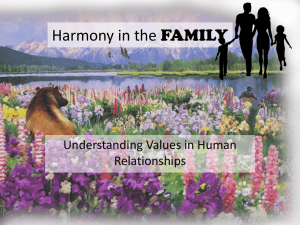Self Talk
advertisement
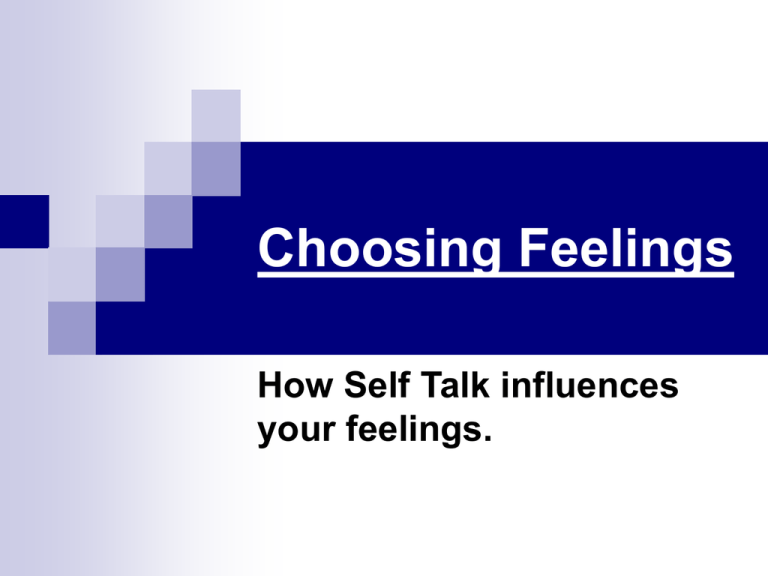
Choosing Feelings How Self Talk influences your feelings. Objective: To identify the effects of negative and positive self-talk on your feelings To identify where your feelings derive from. To understand how to an event followed by a particular chosen response results in what you get. Personal Power Chart Getting What You Want Steps to Personal Power WHAT YOU GET YOUR ACTIONS YOUR ATTITUDES YOUR VOCABULARY YOUR CHOICES What you get! 1. 2. 3. 4. What you get, what happens to you is a result of actions you take. Your actions are a result of your feelings or attitudes. Your feelings or attitudes are a result of your vocabulary, the words you use orally and/or silently (self-talk). What vocabulary you use is a choice you make. Your feelings, then, are created by the vocabulary you use, particularly the self-talk you use. Self-talk is another way of saying the thoughts you have. Example Situation Let’s say that toward the end of lunch break, you remember you want to call your mom to ask her if you can go over to a friend’s house after school. When you get to the office, someone else is using the phone. You wait, and you wait, and you wait some more. Finally, the warning bell rings, and you turn to go to class. You start thinking in your head: ‘Now I’ll be late for class and Lori is going to rag on me and I’ll have to miss my break all because that stupid jerk wouldn’t get off the phone. Example Discussion “How are you going to feel as a result of that self-talk?” “What if, when you left the office you chose the following though pattern: “I wish I would’ve remember earlier to go use the phone. Maybe I’ll do some extra Math during break since I’ll be staying in.” “How are you going to feel as a result of those thoughts?” Example Discussion “Were the feelings the same in the two instances?” (no, first one was negative, second one was positive) “Did the event change?” (no, the situation stayed the same) “If the same person could end up with different feelings after the same event, did the event cause the feelings?” (no) “What did cause the feelings?” (what the person thought, their self-talk) “Where does self-talk come from?” (your thoughts) “Who controls what you think?” (you do) “So, who controls what you feel?” (you do) “Event + Response = What you get” E+R=W Come up with four problems/situations Examples: Your mom nags you about not doing your chores. Another student is saying rude things about you. You get a speeding ticket Self-Talk Creates Feelings Chart Negative Feelings Positive Feelings Self Talk Wrap Up “Can other people or events make you feel happy or sad?” (no) Where do feelings come from?” (self-talk) “How can you choose your feelings?” (choosing your self-talk) “How will this skill help you in life and at school?” (accept all responses) “Controlling your feelings is hard initially and doesn’t always work very effectively at first. Practice will make it easier and more effective. You will find it easier and easier to control your feelings and responses as you practice.”
